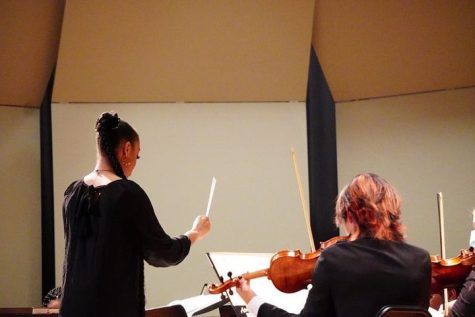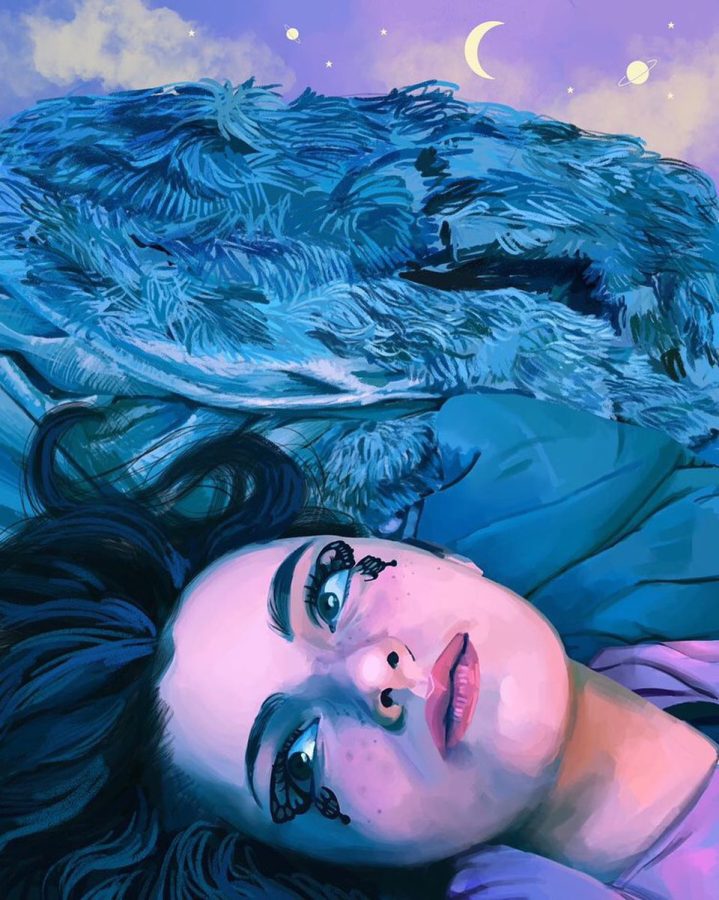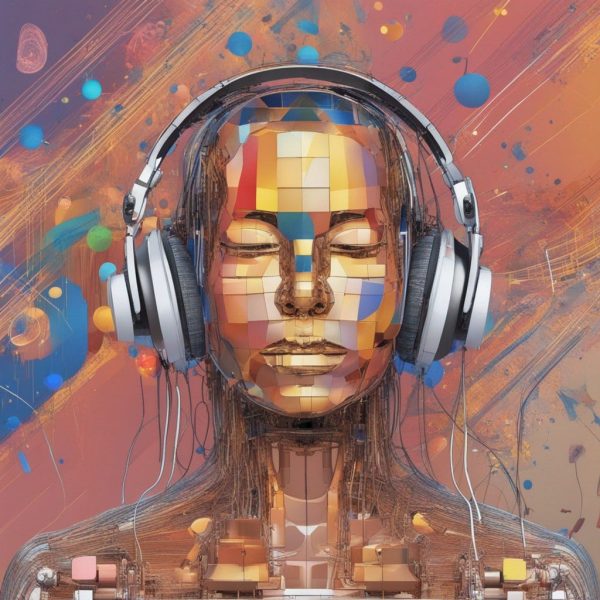The starving artist: fact or fiction
LAUREN HOBSON// USED WITH PERMISSION
“Selene” by Lauren Hobson (12) is a self portrait with the artist portrayed as the Greek goddess Selene. While she has been a digital artist for much of her life, she hopes college will give her the opportunity to explore new media.

No one wants to be a starving artist, and many believe that pursuing a career in the arts will turn them into just that. Recently, the growth of Artificial Intelligence (AI) generated art has only strengthened that conception. While there has been a push towards science, technology, engineering and mathematics (STEM) careers in years past, many have pushed back recently, embracing their creative passions and the unique skills gained from them.
Elio Martin (12) has held a fascination with the theater ever since he saw the play “Hamilton” in middle school. He was so captivated by the performance that he turned away from his parent’s hope that he would focus on STEM, drawn instead to the complex world of play production.
“I found [theater] through a music class in seventh grade, and I was just … mesmerized,” Martin said. “From that moment where I saw … ‘Hamilton,’ I was like this is insane, and I need to know more about this.”
Martin plans to attend the University of Memphis as a Technical Theater and Theater Design major. While this university’s theater department is not prestigious, he felt that the positive social atmosphere and the various opportunities around Memphis for theater professionals made it the best fit for him.
“Even before I knew I wanted to go into theater for sure, I [always said] ‘U of M is where I need to go,’” Martin said.
While a career in acting is admittedly risky, theater design and play production (the behind-the-scenes part of theater) can offer many valuable opportunities and, contrary to the stereotypes, good pay.
“With [technical] theater specifically, I know it’s untrue,” Martin said. “Because techies are getting paid a [lot] of money. If you’re able to climb the ladder, techies get paid a lot.”
As a member of both the band and orchestra, Aniyya Dent (12) quite literally has her hands full when it comes to musical commitments. Next year, she plans to pursue a B. A. in Music Education at the University of Memphis in the hopes of one day becoming a conductor.
“I feel like music teaches you things outside of the actual playing part,” Dent said. “Music has helped me become more organized … I had to make a practice schedule because I was having trouble finding time to practice … now I make schedules for everything.”
For Dent, a key motivation in pursuing music over a more traditional degree has been the social experience of working with other motivated artists.
“Just the creativity [motivates me],” Dent said, “Always having people that are excited to create something new.”
Lauren Hobson (12) has known from an early age that she wanted to be a professional artist. Next year, she plans to attend Converse University where she will pursue a B.A. in Fine Arts. Although her parents were initially skeptical, worried that she would work a more risky freelance job, Hobson’s plan has always been to work as an illustrator for a company.
“My parents thought I was going to be selling my art on the side of the road,” Hobson said. “I was like ‘I don’t think you understand that there are companies who do specifically this.’”
Although the advent of AI generated artwork has raised some alarms for artists, Hunter believes that human artists will always be necessary.
“Art is something that we will always need,” Hobson said. “It doesn’t matter what year it is, or what sciences have come up … we need artists to express the things that we can’t say.”
Your donation will support the student journalists of White Station High School. Your contribution will allow us to purchase equipment and cover our annual website hosting costs.





































